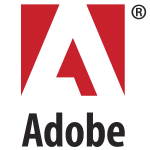- Industry: Software
- Number of terms: 430
- Number of blossaries: 3
- Company Profile:
Adobe offers a line of creative, business, Web, and mobile software and services used by creative professionals, knowledge workers, consumers, original equipment manufacturers, developers, and enterprises.
The word glyph is used differently in different contexts. In the context of modern computer operating systems, it is often defined as a shape in a font that is used to represent a character code on screen or paper. The most common example of a glyph is a letter, but the symbols and shapes in a font like ITC Zapf Dingbats are also glyphs. Also see character, character encoding, keyboard layout.
Industry:
A document style in which the first line of a paragraph is aligned with the left margin, and the remaining lines are all indented an equal amount. This is sometimes referred to as outdenting. This is an effective style for displaying lists of information.
Industry:
The short lines of emphasized text that introduce detail information in the body text that follows. Also the category of faces that are designed to work best in headline text.
Industry:
The mathematical instructions added to digital fonts to make them sharp at all sizes and on display devices of different resolutions.
Industry:
A slanting or script-like version of a face. The upright faces are often referred to as roman.
Industry:
A block of text that has been spaced so that the text aligns on both the left and right margins. Justified text has a more formal appearance, but may be harder to read.
Industry:
The adjustment of horizontal space between individual characters in a line of text. Adjustments in kerning are especially important in large display and headline text lines. Without kerning adjustments, many letter combinations can look awkward. The objective of kerning is to create visually equal spaces between all letters so that the eye can move smoothly along the text. Kerning may be applied automatically by the desktop publishing program based on tables of values. Some programs also allow manual kerning to make fine adjustments.
Industry:
Sometimes known as a character mapping, a keyboard layout or mapping is a table used by a computer operating system to govern which character code is generated when a key or key combination is pressed. Also see character, character encoding, glyph.
Industry:
The amount of space added between lines of text to make the document legible. The term originally referred to the thin lead spacers that printers used to physically increase space between lines of metal type. Most applications automatically apply standard leading based on the point size of the font. Closer leading fits more text on the page, but decreases legibility. Looser leading spreads text out to fill a page and makes the document easier to read. Leading can also be negative, in which case the lines of text are so close that they overlap or touch.
Industry:
Adjusting the average distance between letters in a block of text to fit more or less text into the given space or to improve legibility. Kerning allows adjustments between individual letters; letterspacing is applied to a block of text as a whole. Letterspacing is sometimes referred to as tracking or track kerning.
Industry:
